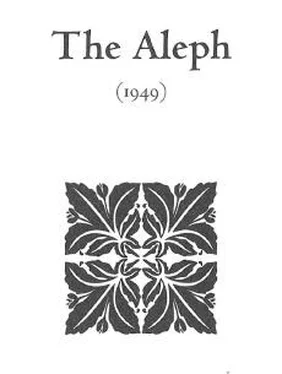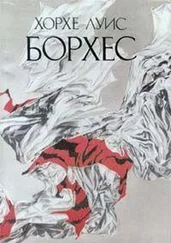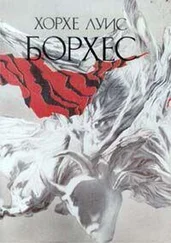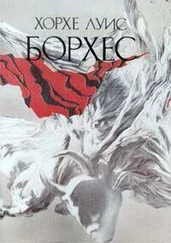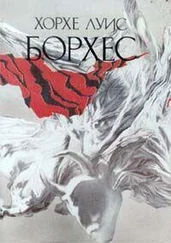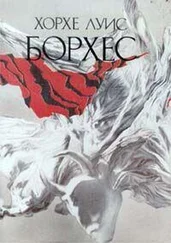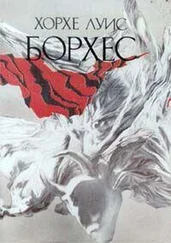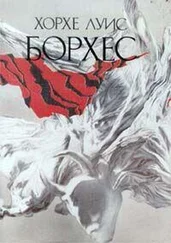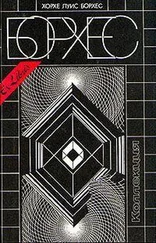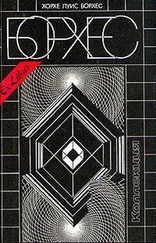Хорхе Борхес - Collected Fictions
Здесь есть возможность читать онлайн «Хорхе Борхес - Collected Fictions» весь текст электронной книги совершенно бесплатно (целиком полную версию без сокращений). В некоторых случаях можно слушать аудио, скачать через торрент в формате fb2 и присутствует краткое содержание. Год выпуска: 1999, ISBN: 1999, Издательство: Penguin (UK), Жанр: Старинная литература, на английском языке. Описание произведения, (предисловие) а так же отзывы посетителей доступны на портале библиотеки ЛибКат.
- Название:Collected Fictions
- Автор:
- Издательство:Penguin (UK)
- Жанр:
- Год:1999
- ISBN:9780140286809
- Рейтинг книги:5 / 5. Голосов: 1
-
Избранное:Добавить в избранное
- Отзывы:
-
Ваша оценка:
- 100
- 1
- 2
- 3
- 4
- 5
Collected Fictions: краткое содержание, описание и аннотация
Предлагаем к чтению аннотацию, описание, краткое содержание или предисловие (зависит от того, что написал сам автор книги «Collected Fictions»). Если вы не нашли необходимую информацию о книге — напишите в комментариях, мы постараемся отыскать её.
Collected Fictions — читать онлайн бесплатно полную книгу (весь текст) целиком
Ниже представлен текст книги, разбитый по страницам. Система сохранения места последней прочитанной страницы, позволяет с удобством читать онлайн бесплатно книгу «Collected Fictions», без необходимости каждый раз заново искать на чём Вы остановились. Поставьте закладку, и сможете в любой момент перейти на страницу, на которой закончили чтение.
Интервал:
Закладка:
my way of life
Is fall'n into the sear, the yellow leaf.
One morning I perceived a sense of guilt deep within his memory. I did not try to define it; Shakespeare himself has done so for all time. Suffice it to say that the offense had nothing in common with perversion.
I realized that the three faculties of the human soul—memory, understanding, and will—are not some mere Scholastic fiction. Shakespeare's memory was able to reveal to me only the circumstances of the man Shakespeare. Clearly, these circumstances do not constitute the uniqueness of the poet; what matters is the literature the poet produced with that frail material.
I was naive enough to have contemplated a biography, just as Thorpe had. I soon discovered, however, that that literary genre requires a talent for writing that I do not possess. I do not know how to tell a story. I do not know how to tell my own story, which is a great deal more extraordinary than Shakespeare's. Besides, such a book would be pointless. Chance, or fate, dealt Shakespeare those trivial terrible things that all men know; it was his gift to be able to transmute them into fables, into characters that were much more alive than the gray man who dreamed them, into verses which will never be abandoned, into verbal music. What purpose would it serve to unravel that wondrous fabric, besiege and mine the tower, reduce to the modest proportions of a documentary biography or a realistic novel the sound and fury of Macbeth?
Goethe, as we all know, is Germany's official religion; the worship of Shakespeare, which we profess not without nostalgia, is more private. (In England, the official religion is Shakespeare, who is so unlike the English; England's sacred book, however, is the Bible.)
Throughout the first stage of this adventure I felt the joy of being Shakespeare; throughout the last, terror and oppression. At first the waters of the two memories did not mix; in time, the great torrent of Shakespeare threatened to flood my own modest stream—and very nearly did so. I noted with some nervousness that I was gradually forgetting the language of my parents. Since personal identity is based on memory, I feared for my sanity.
My friends would visit me; I was astonished that they could not see that I was in hell.
I began not to understand the everyday world around me (diealltäg-liche Umwelt). One morning I became lost in a welter of great shapes forged in iron, wood, and glass. Shrieks and deafening noises assailed and confused me. It took me some time (it seemed an infinity) to recognize the engines and cars of the Bremen railway station.
As the years pass, every man is forced to bear the growing burden of his memory. I staggered beneath two (which sometimes mingled)—my own and the incommunicable other's.
The wish of all things, Spinoza says, is to continue to be what they are. The stone wishes to be stone, the tiger, tiger—and I wanted to be Hermann Sörgelagain.
I have forgotten the date on which I decided to free myself. I hit upon the easiest way: I dialed telephone numbers at random. The voice of a child or a woman would answer; I believed it was my duty to respect their vulnerable estates. At last a man's refined voice answered.
"Do you," I asked, "want Shakespeare's memory? Consider well: it is a solemn thing I offer, as I can attest."
An incredulous voice replied:
"I will take that risk. I accept Shakespeare's memory." I explained the conditions of the gift.
Paradoxically, I felt both a nostalgie for the book I should have written, and now never would, and a fear that the guest, the specter, would never abandon me.
I hung up the receiver and repeated, like a wish, these resigned words: Simply the thing I am shall make me live.
I had invented exercises to awaken the antique memory; I had now to seek others to erase it. One of many was the study of the mythology of William Blake, that rebellious disciple of Swedenborg. I found it to be less complex than merely complicated.
That and other paths were futile; all led me to Shakespeare.
I hit at last upon the only solution that gave hope courage: strict, vast music—Bach.
P. S. (1924)— I am now a man among men. In my waking hours I am Professor Emeritus Hermann Sörgel; I putter about the card catalog and compose erudite trivialities, but at dawn I sometimes know that the person dreaming is that other man. Every so often in the evening I am unsettled by small, fleeting memories that are perhaps authentic.
A Note on the Translation
The first known English translation of a work of fiction by the Argentine Jorge Luis Borges appeared in the August 1948 issue of Ellery Queen's Mystery Magazine, but although seven or eight more translations appeared in "little magazines" and anthologies during the fifties, and although Borges clearly had his champions in the literary establishment, it was not until 1962, fourteen years after that first appearance, that a book-length collection of fiction appeared in English.
The two volumes of stories that appeared in the annus mirabilis —one from Grove Press, edited by Anthony Kerrigan, and the other from New Directions, edited by Donald A. Yates and James E. Irby—caused an impact that was immediate and overwhelming. John Updike, John Barth, Anthony Burgess, and countless other writers and critics have eloquently and emphatically attested to the unsettling yet liberating effect that Jorge Luis Borges' work had on their vision of the way literature was thenceforth to be done. Reading those stories, writers and critics encountered a disturbingly other writer (Borges seemed, sometimes, to come from a place even more distant than Argentina, another literary planet), transported into their ken by translations, who took the detective story and turned it into metaphysics, who took fantasy writing and made it, with its questioning and reinventing of everyday reality, central to the craft of fiction. Even as early as 1933, Pierre Drieu La Rochelle, editor of the influential Nouvelle Revue Française, returning to France after visiting Argentina, is famously reported to have said, "Borges vaut levoyage"; now, thirty years later, readers didn't have to make the long, hard (though deliciously exotic) journey into Spanish—Borges had been brought to them, and indeed he soon was being paraded through England and the United States like one of those New World indigenes taken back, captives, by Columbus or Sir Walter Raleigh, to captivate the Old World's imagination.
But while for many readers of these translations Borges was a new writer appearing as though out of nowhere, the truth was that by the time we were reading Borges for the first time in English, he had been writing for forty years or more, long enough to have become a self-conscious, self-possessed, and self-critical master of the craft.
The reader of the forewords to the fictions will note that Borges is forever commenting on the style of the stories or the entire volume, preparing the reader for what is to come stylistically as well as thematically. More than once he draws our attention to the "plain style" of the pieces, in contrast to his earlier "baroque." And he is right: Borges' prose style is characterized by a deter-mined economy of resources in which every word is weighted, every word (every mark of punctuation) "tells." It is a quiet style, whose effects are achieved not with bombast or pomp, but rather with a single exploding word or phrase, dropped almost as though offhandedly into a quiet sentence: "He examined his wounds and saw, without astonishment, that they had healed." This laconic detail ("without astonishment"), coming at the very beginning of "The Circular Ruins," will probably only at the end of the story be recalled by the reader, who will, retrospectively and somewhat abashedly, see that it changes everything in the story; it is quintessential Borges.
Читать дальшеИнтервал:
Закладка:
Похожие книги на «Collected Fictions»
Представляем Вашему вниманию похожие книги на «Collected Fictions» списком для выбора. Мы отобрали схожую по названию и смыслу литературу в надежде предоставить читателям больше вариантов отыскать новые, интересные, ещё непрочитанные произведения.
Обсуждение, отзывы о книге «Collected Fictions» и просто собственные мнения читателей. Оставьте ваши комментарии, напишите, что Вы думаете о произведении, его смысле или главных героях. Укажите что конкретно понравилось, а что нет, и почему Вы так считаете.
